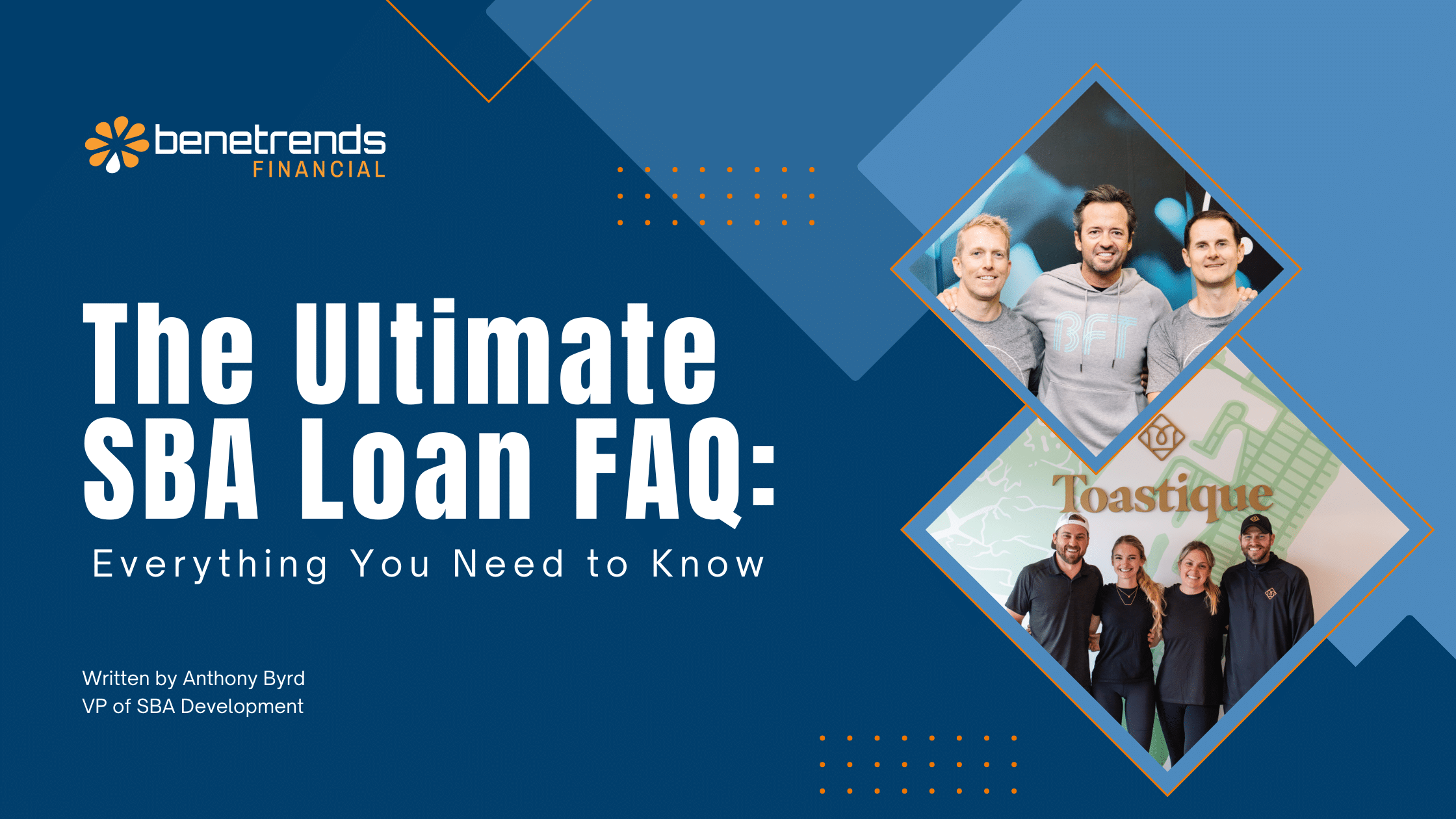When it comes to financing your small business, SBA loans are a great option due to their favorable terms and accessibility. However, understanding the details of these loans can be overwhelming. In this guide, we answer the most frequently asked questions about SBA loans to help you make an informed decision.
What Are the Different SBA Loan Programs, and Which Is Right for Me?
The SBA offers multiple loan programs, including:
- 7(a) Loan Program – The most common SBA loan, used for working capital, equipment, real estate, and more.
- 504 Loan Program – Designed for purchasing real estate or major fixed assets.
The right loan depends on your business needs, industry, and financial profile. Consulting with an SBA-approved lender can help you determine the best fit.
What Documents Are Typically Required for SBA Loan Applications?
To apply for an SBA loan, you will need:
- Business plan
- Financial statements (P&L, balance sheet, cash flow)
- Tax returns (business and personal)
- Personal financial statement
- Credit report
- Collateral details (if applicable)
- Debt schedule (if applicable)
- Legal documents (business licenses, franchise agreements, etc.)
Having these documents prepared in advance can streamline the application process.
How Does the SBA Loan Process Differ for a Startup Versus an Established Business?
- Startups: Approval is based on business projections, personal financials, industry experience, and investment in the business.
- Established businesses: Approval is based on historical financials, cash flow, and debt service coverage.
Lenders prefer businesses with a track record, but startups can still qualify with strong financial planning and experience.
Can I Use SBA Funds for Franchise Fees?
Yes! SBA loans can cover franchise fees, startup costs, equipment, working capital, and real estate. However, you must meet the required down payment first.
Are There Specific SBA Programs or Benefits for Women, Veterans, or Minority Business Owners?
Yes, the SBA provides special support for underserved groups, including:
- SBA Veterans Advantage Program – Reduced fees for veteran-owned businesses. (Until 10/1/25, this benefit only applies to loans over $1 million.)
Other programs and resources are available to support women and minority entrepreneurs.
What Are the Most Common Reasons SBA Loans Get Denied?
- Poor credit history (typically below 680)
- Insufficient cash flow to repay the loan
- Lack of collateral (for larger loan amounts)
- Excessive existing debt
- Business in an ineligible industry (e.g., speculative investments)
- Insufficient personal investment in the business
How Do SBA Loans Compare to Traditional Bank Loans?
SBA loans typically offer:
- Lower down payments
- Longer repayment terms
- Lower interest rates than conventional bank loans
These advantages make SBA loans an attractive financing option for small business owners.
What Industries or Types of Businesses Are Typically Eligible for SBA Loans?
Most for-profit businesses qualify, including:
- Retail
- Restaurants
- Franchises
- Service businesses
- Manufacturers
Certain industries, such as speculative investments, may be ineligible.
What Happens if I Want to Refinance My SBA Loan Later?
You can refinance an SBA loan under certain conditions, such as improving cash flow or securing better terms. However, lenders typically require at least two years of business financials before considering a refinance.
Does the SBA Require a Personal Guarantee for Loans?
Yes, the SBA requires a personal guarantee from anyone owning 20% or more of the business. This means that if your business cannot repay the loan, you are personally responsible for the debt.
SBA loans can be a game-changer for small businesses looking for flexible, affordable financing. By understanding the requirements and benefits, you can make an informed decision that supports your business growth. If you’re considering an SBA loan, consult with an experienced lender to explore your options and increase your chances of approval.
